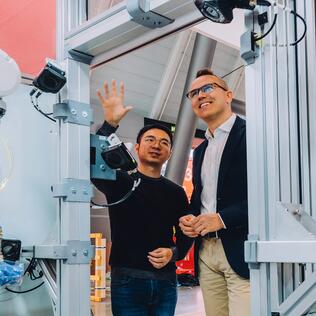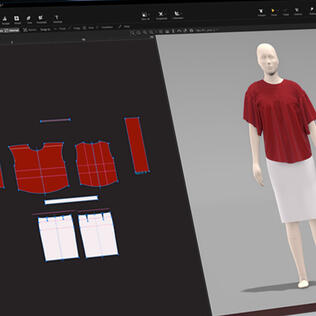"Apple Intelligence" and its significance for e-commerce – a commentary by Johanna Hinz

Following in the footsteps of major tech players such as Google, Microsoft and Samsung, Apple has now also unveiled its own AI solution: "Apple Intelligence" is intended to turn the smartphone into a personal intelligent assistant and bring generative artificial intelligence (GenAI) into the everyday lives of many people. What could this mean for online shopping and e-commerce in the future? A commentary by Johanna Hinz, Head of Tech Strategy at the Otto Group.
When you work in the tech industry and deal with new trends a lot, you are rarely blown away by an announcement. It was different in November 2022 when ChatGPT was released. You could sense that something big was coming. It usually takes some time for a technical innovation like this to find its way into our everyday lives and be used so regularly and profoundly that it really changes our lives. If it succeeds at all.
I use voice assistants myself on a daily basis, for example to remind me of to-dos or to set a timer so that my tea doesn't brew for too long. For this reason, I immediately hypothesized that only the integration of generative AI language models into existing voice assistants would lead to real market penetration. In my view, it was the easy access to GenAI that triggered the hype in the first place. Integration into voice assistants will now drive usage figures to previously unimagined heights.
In my opinion, yesterday's announcement from Cupertino to bring “Apple Intelligence” to our devices is the biggest leap in the development of artificial intelligence to date – not from a technical perspective, but from a customer perspective. One small fly in the ointment: The AI assistant will initially be available for newer iPhone, iPad and Mac models in the USA from the fall; plans for Europe are still unclear.
We are thus taking the first major step towards a truly powerful digital assistant. This will fundamentally change our everyday routines and many areas of our lives - with far-reaching consequences for industries such as e-commerce. Sooner or later, voice assistants will no longer just be able to provide information, edit images and curate texts, but will also be able to shop for us. Why is that the case? Apple – as well as Google and, in the working context, Microsoft – have built entire ecosystems around their customers in recent years, primarily via end devices. A great deal of data is already known in these ecosystems, from photos and appointments in the calendar to locations, email accounts and banking. This data is the fuel for the use of digital assistants and the basis for true personalization.
With the help of this and other data, intelligent digital assistants can easily search for items based on individual needs and preferences, for example. So instead of filtering by brand, size, color and style in the online store, my personal GenAI assistant in my smartphone will create personalized product lists that make the shopping experience more inspiring and convenient. I believe these innovations will fundamentally change e-commerce. And above all, I am convinced that this step means we have finally arrived in the AI era.
The AI news from Cuppertino is not the only thing influencing e-commerce: Apple has also announced the German launch of the Apple Vision Pro augmented reality glasses. OTTO has developed its own live shopping app for this, allowing customers to experience numerous products in 3D right before their eyes during live shopping shows. Click here for the news in German: OTTO startet Live Shopping auf Apple Vision Pro





